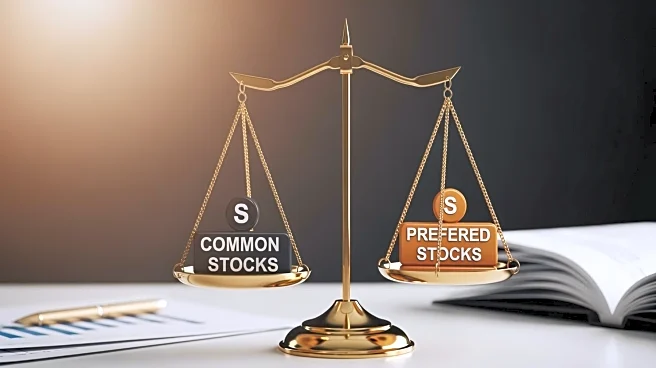What's Happening?
First Citizens BancShares, Inc., a prominent U.S. financial institution, has announced the declaration of quarterly dividends on its common and preferred stock. The Board of Directors has approved a dividend of $2.10
per share for the company's Class A and Class B common stock. Additionally, the company will distribute a regular quarterly dividend of $13.4375 per share on its 5.375% non-cumulative perpetual preferred stock, Series A, which translates to $0.335938 per depositary share. Furthermore, a dividend of $20.908312 per share will be paid on the company's fixed-to-floating rate, non-cumulative perpetual preferred stock, Series B, and a regular quarterly dividend of $0.351563 per share on the company's 5.625% non-cumulative perpetual preferred stock, Series C. These dividends are scheduled to be paid on December 15, 2025, to shareholders of record as of November 28, 2025.
Why It's Important?
The declaration of dividends by First Citizens BancShares underscores the company's financial health and commitment to returning value to its shareholders. As a top 20 U.S. financial institution with over $200 billion in assets, the company's ability to consistently pay dividends reflects its stability and long-term strategic planning. This move is likely to bolster investor confidence and may attract more investment into the company. For shareholders, these dividends represent a tangible return on their investment, enhancing the attractiveness of holding shares in First Citizens BancShares. The decision also highlights the company's robust financial performance and its capacity to generate sufficient earnings to support such distributions.
What's Next?
Shareholders can expect to receive their dividend payments on December 15, 2025, provided they are on record by November 28, 2025. The company's continued financial performance will be closely monitored by investors and analysts, particularly in light of its dividend declarations. Future dividend announcements will depend on the company's ongoing profitability and strategic financial management. Stakeholders will also be attentive to any potential changes in the economic environment that could impact the company's financial strategies and dividend policies.










